Scott Morrison’s ‘red line’ warning on China base
Scott Morrison draws a red line over Chinese military bases in the Solomons and warns Australia will join the US and allies to keep the PLA off our ‘doorstep’.
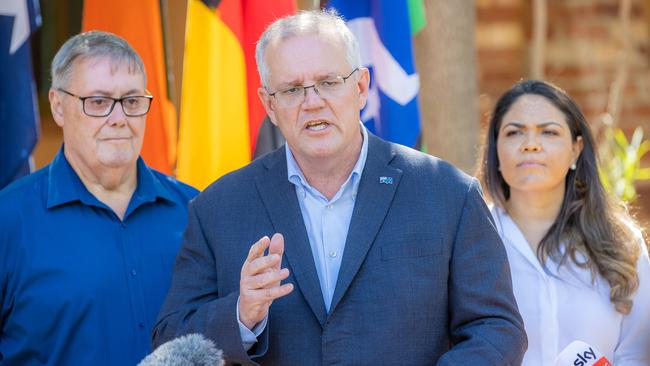
Scott Morrison has drawn a red line in the South Pacific over Chinese military bases in the Solomon Islands and warned that Australia will join the US and regional allies to keep the PLA off our “doorstep”.
The “red line” warning came after Joe Biden’s top Pacific adviser, Kurt Campbell, met with Solomon Islands Prime Minister Manasseh Sogavare and senior government officials in Honiara on Friday.
In a White House statement released following the 90-minute meeting, the US said it would have “significant concerns and respond accordingly” if China were allowed to establish a military presence.
Amid growing concerns that the Sogavare government’s security agreement with China will pave the way for a Solomon Islands PLA base, the Prime Minister on Sunday said “we won’t be having Chinese military naval bases in our region – on our doorstep”.
“This is a shared concern, not just Australia, this is Australia and regional governments, particularly places like Fiji and Papua New Guinea,” Mr Morrison said.
“Working together with our partners in New Zealand and, of course, the US, I share the same red line that the US has when it comes to these issues.
“Prime Minister Sogavare has been very clear to me saying there will be no such base. So that is what he has said. So he clearly shares our red line.”
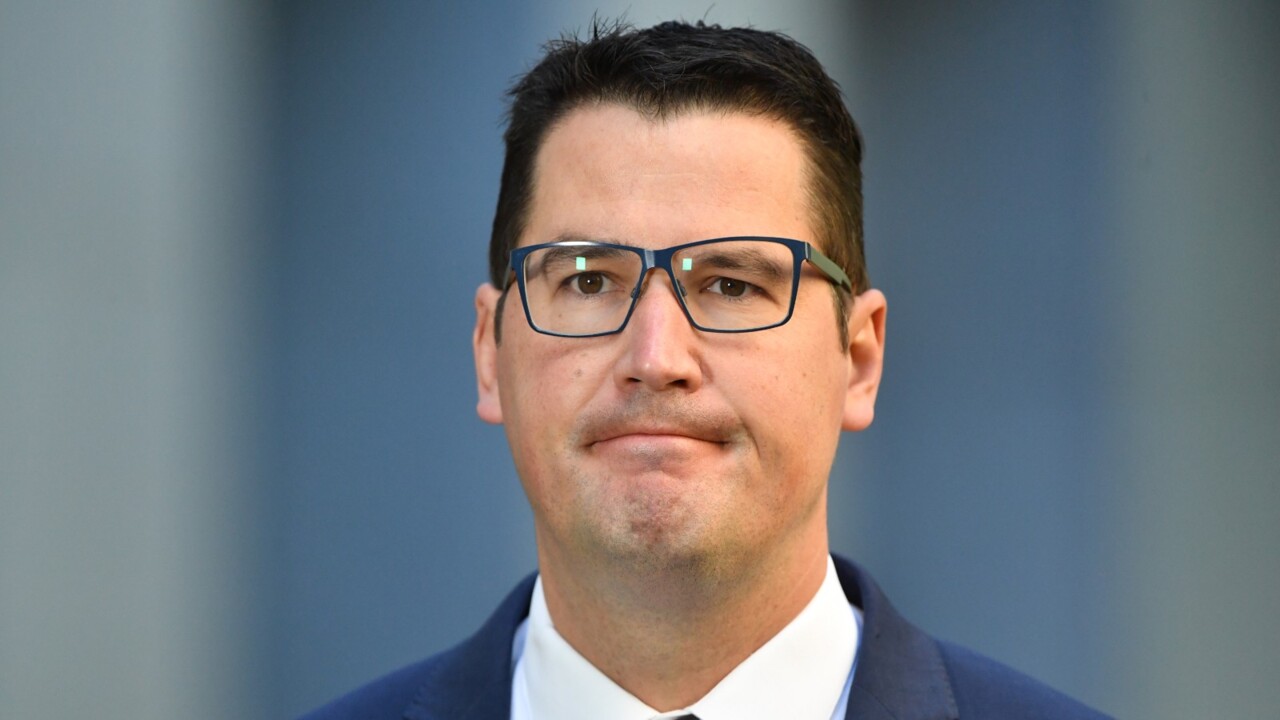
With Labor using the Solomons-China deal to attack the Coalition ahead of the election, Mr Morrison said while Australian aid to Solomon Islands had been “very effective”, the Chinese government does “not play within the same rules and there is lots of vulnerability in our region to that influence”. Australia is outspending China by about three to one on foreign aid in the Pacific nation but has been frustrated by Xi Jinping’s diplomats using largesse spending promises to strengthen their political power in Honiara. Beijing has aggressively undermined Australia’s influence on the ground through big-ticket projects and opaque funding programs controlled by Mr Sogavare.
After Defence Minister Peter Dutton on Sunday accused the Chinese of paying “bribes … to beat other countries to deals”, The Australian can reveal the full extent of China’s publicly disclosed contributions to Solomon Islands since the 2019 switch in diplomatic relations from Taiwan.
The Chinese push – led by ambassador and former senior diplomat in Australia Li Ming – relies heavily on the deployment of Chinese security and medical personnel and labour, including unskilled workers from its prison system. Prominent Solomon Islands MP Peter Kenilorea Jnr said China secured greater influence from a lower financial outlay by “targeting the elites”.
“That’s just how they roll. These discretionary funds that they have, they are set up in the Prime Minister’s office,” Mr Kenilorea Jnr said.
He added that Chinese funding “pales in comparison” to that offered by Canberra but the difference was Australia funded “soft issues”, such as improving governance, human rights and business conditions. He said Australia should consider “tweaking” its aid to funnel more into regional projects, bypassing the national government. “In the Solomons everyone just looks at the hard stuff. Things are happening but people don’t see it,” he said.
With Australia and Japan leading other major civil works in the country, prominent local business sources said there was a “huge gap in quality” with Chinese construction projects, which were “stop-start” and rife with delays.
Armed with a $500m fund, Mr Li’s marquee project is the $100m Pacific Games 2023 stadium and village being built by China Civil Engineering Construction Corporation. Despite claims that the project had created 450 local jobs, hundreds of Chinese engineers and workers have been flown in to Honiara to oversee seven Pacific Games projects
Chinese officials have also used vaccines, specialised medical teams and health equipment to win support on the ground under Mr Xi’s Covid-19 diplomacy strategy targeting developing nations.
Australia has provided almost 502,000 vaccines, 300 oxygen concentrators and 100,000 rapid antigen test kits compared with China’s 50,000 Sinopharm vaccines, 320,000 testing kits and 20 oxygen compressors.
With senior opposition figures Jim Chalmers and Penny Wong flagging an election promise of higher foreign aid for the Solomon Islands and more resources for DFAT on Sunday, The Australian can reveal the costs of last year’s Australian Defence Force and Australian Federal Police deployment were yet to be added to the current foreign aid spend.
As the Solomon Islands’ largest bilateral donor, Australia delivered $171m to the country in official development assistance in 2020-21 and was on track to fund $161m in foreign aid this financial year. The lower amount is linked to the winding back of some Covid-19 measures.
International Development and Pacific Minister Zed Seselja, who travelled to Honiara on April 13 and urged Mr Sogavare against signing the China deal, told The Australian that in addition to foreign aid, significant funding had been put towards strengthening “the security of the region”, including patrol boats and border outposts.
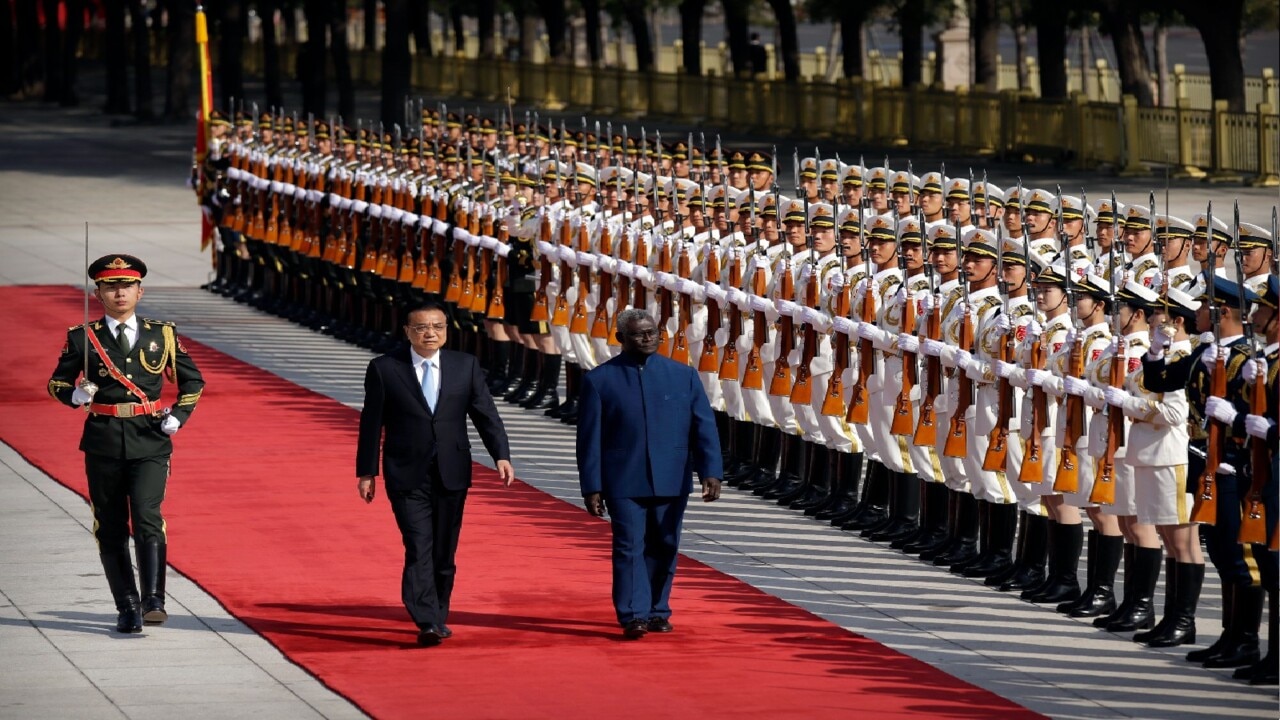
Labor accusations of Solomon Islands foreign aid cuts brush over the significant costs of the Regional Assistance Mission to Solomon Islands, established by John Howard in 2003 following “the tensions”.
Australia’s aid to Solomon Islands jumped from $33m to $139m in 2003-04 to support an international security contingent of 2200 police and troops. After reaching a peak of $257m in 2009-10, the RAMSI mission was wound back to $155m by mid-2017. Senator Seselja said “under our Pacific Step-Up, we are delivering over $2.7bn to the Pacific this year, including a record $1.85bn in development assistance”.
“This is by far the largest investment in the Pacific by any country in any year. We are committed to supporting our region not only because it is the right thing to do, it is essential to maintaining an open and free Pacific, and we are unwavering in that commitment,” he said.
Mr Li, China’s first Solomon Islands ambassador who has forged a close relationship with Mr Sogavare, has dramatically ramped up Beijing’s presence on the ground. The veteran diplomat spent three years as counsellor in the Chinese embassy in Canberra and played a prominent role negotiating the China-Australia free-trade agreement and organising Mr Xi’s address to federal parliament in 2014.
Mr Dutton said China had paid “bribes” to Pacific Island nations and was drawing on its “playbook” in dealing with African countries. The Defence Minister said he could not comment on whether corrupt payments had been made in the Solomon Islands, but China had become “incredibly aggressive” in the region. “The acts of foreign interference, the preparedness to pay bribes to get outcomes, and to beat other countries to deals – that’s the reality of the modern China,” he told Sky News.
Senator Wong said Australians “should anticipate more resources and more energy from a Labor government” when it comes to foreign aid and lashed the government for failing to prevent the security pact.
More Coverage
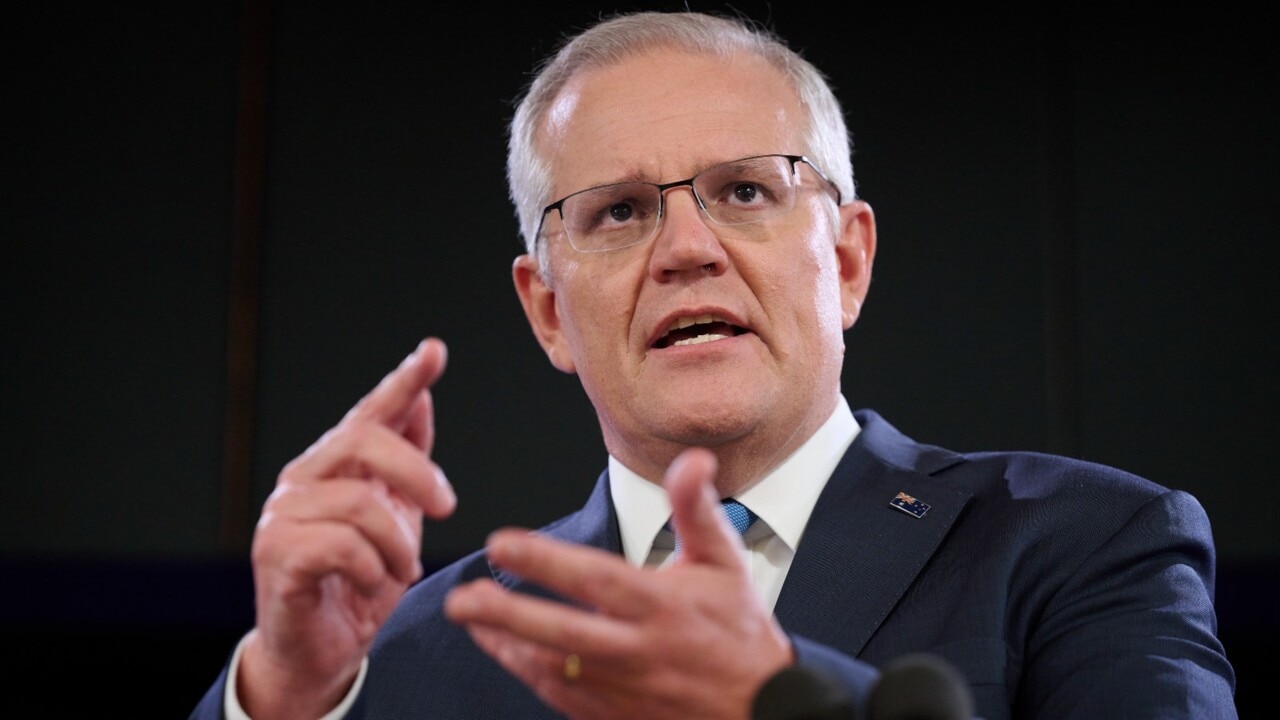

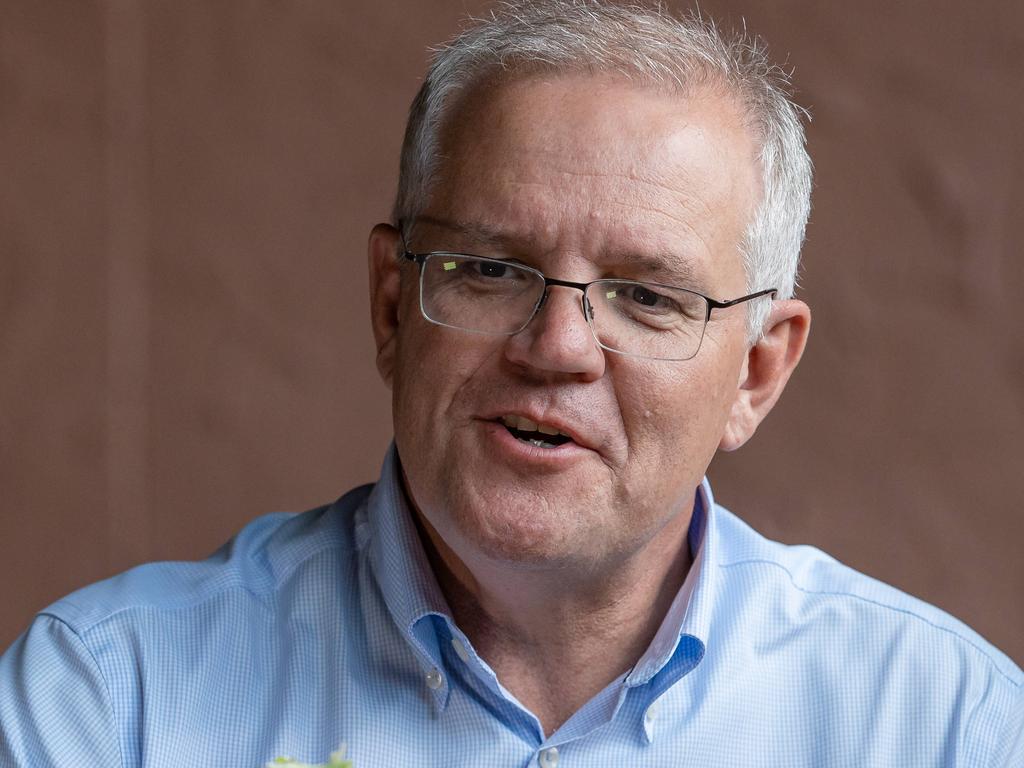

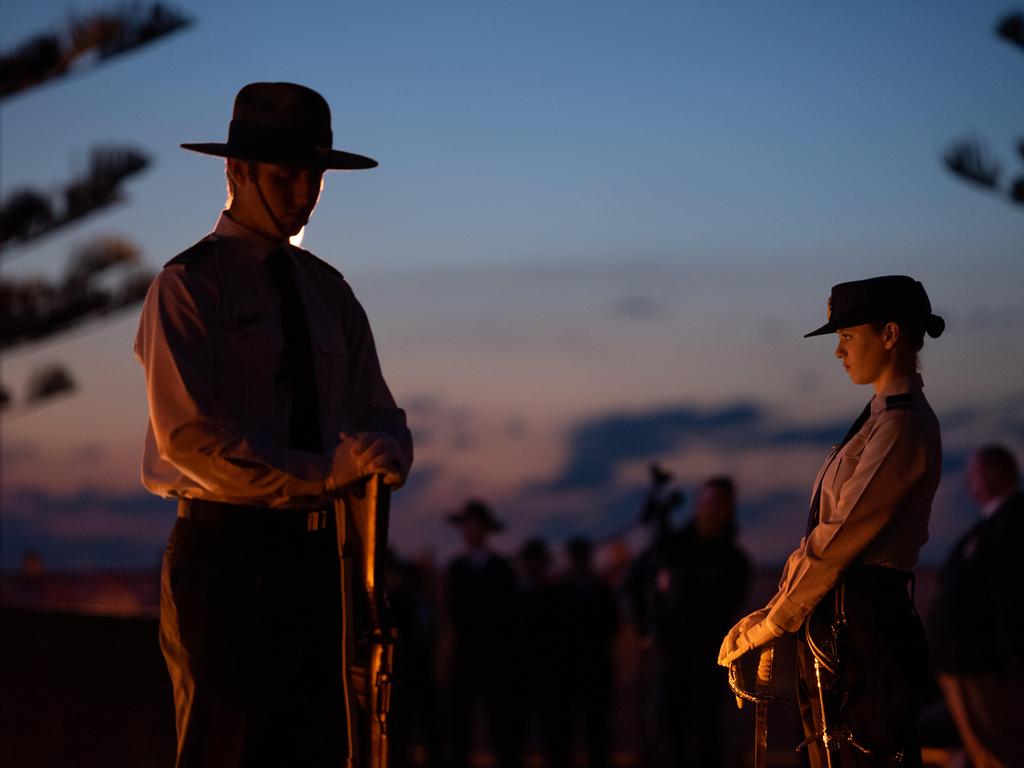
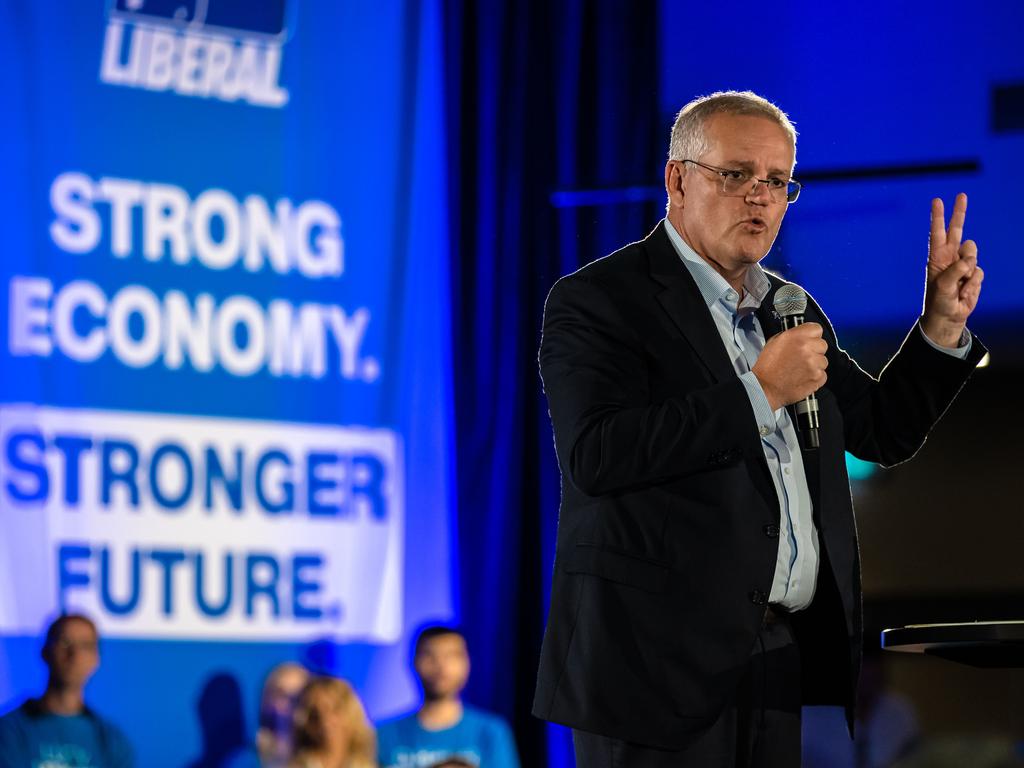


To join the conversation, please log in. Don't have an account? Register
Join the conversation, you are commenting as Logout